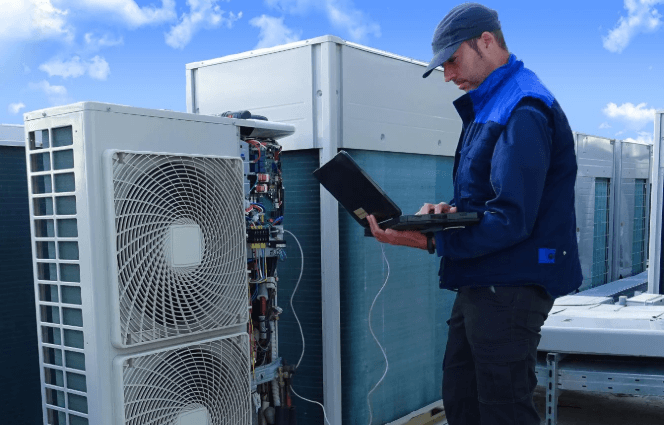The Hidden Costs of Skipping Spring HVAC Service

As the weather warms and you transition from heating to cooling your home, your HVAC system quietly prepares to work overtime during the upcoming summer months. But while spring is the ideal time to schedule routine maintenance, many homeowners overlook this important service, often believing it’s unnecessary if the system “seems to be working fine.” Unfortunately, skipping your spring HVAC service can lead to a series of hidden costs that impact your comfort, wallet, and even health.
Here’s a closer look at the true cost of neglecting spring HVAC maintenance—and why this seasonal checkup is an investment you shouldn’t ignore.
1. Higher Energy Bills
One of the most immediate consequences of skipping your spring HVAC tune-up is decreased efficiency. Over time, dust and debris accumulate on components like filters, coils, and fans, forcing your system to work harder to maintain comfortable temperatures. Dirty or neglected systems use more energy to do the same job, and this inefficiency translates directly to higher utility bills.
By contrast, a spring service visit typically includes a full cleaning, airflow check, and thermostat calibration. These small tweaks can improve your system’s performance and save you money each month.
See also: HCBS Services: A Personalized Approach to Care with Mercy Home Services
2. Unexpected Breakdowns in Hot Weather
Few things are more frustrating than having your air conditioning system fail in the middle of a heatwave. And while breakdowns often feel sudden, they’re usually the result of long-term wear and tear, damage that could have been identified and resolved during a spring inspection.
HVAC technicians use this service appointment to look for signs of trouble, like loose electrical connections, worn belts, or low refrigerant levels. Catching these issues early helps you avoid costly emergency repairs when demand (and technician wait times) is at their peak.
If you’ve been searching online for HVAC near me in the middle of July, chances are you’re already paying the price of skipping your spring tune-up.
3. Reduced System Lifespan
HVAC systems are designed to last for many years, but like any piece of machinery, they require regular care to reach their full potential. When maintenance is skipped, components experience more strain, and minor problems often escalate into major ones.
Routine spring service is essential to extending the life of your HVAC system. By keeping it clean, lubricated, and properly adjusted, you reduce unnecessary wear and help prevent premature failure. Considering the cost of replacing an entire system, regular tune-ups are a smart, long-term investment.
4. Poor Indoor Air Quality
Your HVAC system plays a significant role in maintaining indoor air quality. Without regular cleaning, it can become a breeding ground for dust, mold, bacteria, and allergens that circulate throughout your home.
A spring maintenance check includes cleaning or replacing air filters, inspecting ductwork, and clearing condensation drain lines. These steps help ensure you and your family are breathing cleaner, healthier air—especially important during allergy season when pollen and pollutants are already on the rise.
5. Warranty Voiding
Many HVAC systems come with warranties that cover parts and labor for several years. However, manufacturers often require proof of regular maintenance to keep the warranty valid. Skipping seasonal service visits could void your warranty, leaving you fully responsible for future repairs or replacement costs.
Be sure to review your HVAC warranty terms and schedule maintenance accordingly to protect your investment.
6. Delayed Detection of Upgrade Opportunities
Another benefit of seasonal HVAC service is that it gives professionals a chance to evaluate whether your current system is still the best fit for your home. Aging systems may still run, but not efficiently meaning you’re likely overpaying on utilities without realizing it.
A trained technician can recommend upgrades like programmable thermostats, smart zoning systems, or even new heat pumps, which are now more energy-efficient and environmentally friendly than ever. Investing in modern equipment can drastically lower your energy use while improving year-round comfort.
7. Increased Environmental Impact
When your HVAC system runs inefficiently, it not only wastes energy but also contributes to higher carbon emissions. Systems with refrigerant leaks or poor airflow may consume far more power than necessary. Regular maintenance helps keep your system eco-friendly by reducing energy consumption and ensuring all components are functioning correctly.For environmentally conscious homeowners, maintaining your system is one of the simplest ways to reduce your household’s carbon footprint.
Skipping spring HVAC maintenance may seem like a way to save money in the short term, but the long-term consequences can be far more costly. From higher energy bills and emergency repairs to reduced air quality and voided warranties, the hidden costs quickly add up.
A little attention now can prevent a season full of discomfort and costly surprises. Don’t skip the spring checkup—treat your HVAC system to the care it needs and enjoy a worry-free, energy-efficient summer.




